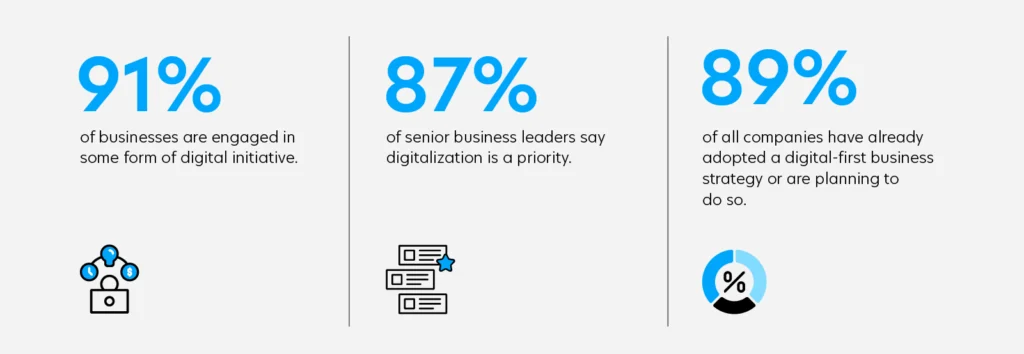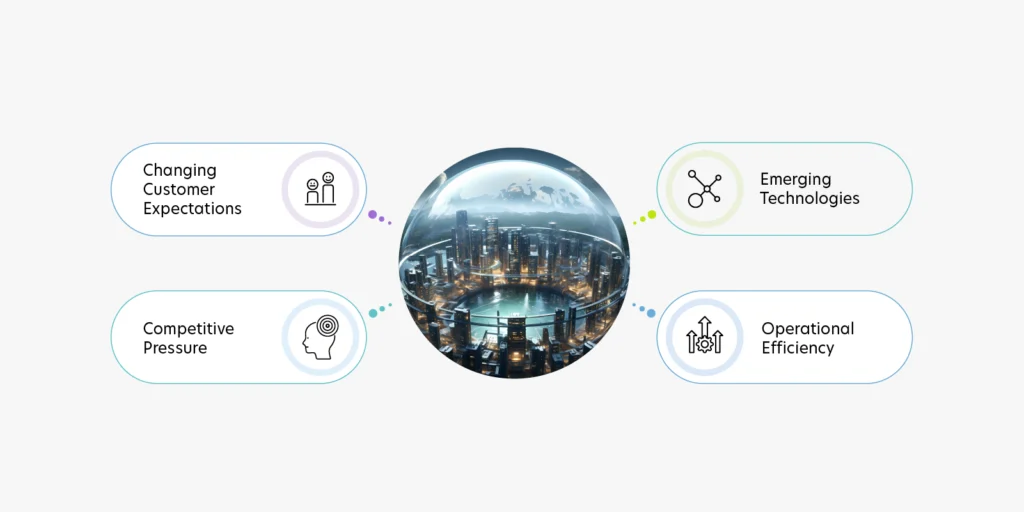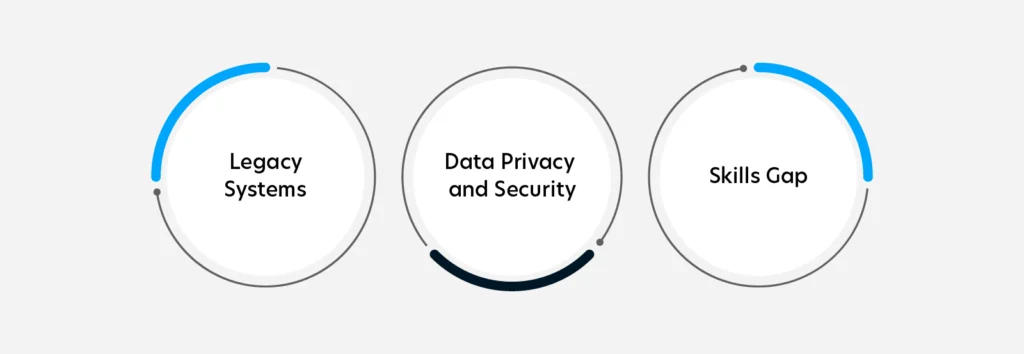The digital age has irrevocably altered the business landscape. Today’s customers are hyper-connected, demanding seamless experiences across all touchpoints. To stay competitive, businesses must embrace digital transformation – not as a one-time project, but as an ongoing journey.
This journey requires a strategic arsenal of digital business solutions, a vast array of tools and technologies – to optimize processes, enhance customer engagement, and ultimately, drive growth.
The Power of Digital: Statistics Don't Lie
The impact of digital solutions on businesses is undeniable. According to Gartner,

These numbers highlight the urgency for businesses to adapt – are you one of the prepared few, or the many scrambling to catch up?
Unlocking the Power of Digital Transformation

Digital business services encompass a wide range of technologies and strategies that enable organizations to streamline operations, enhance customer experiences, and drive innovation. From cloud computing and big data analytics to artificial intelligence (AI) and the Internet of Things (IoT), these solutions are transforming the way businesses operate.
According to reports, 63% of businesses reported increased customer satisfaction after implementing digital transformation initiatives.

Key Trends Shaping the Future of Digital Business Solutions
As businesses navigate the digital transformation landscape, several key trends are emerging that will shape the future of digital business solutions:
- Increased Adoption of AI and Machine Learning: According to a recent study, AI-powered technologies will increase productivity by 40% by 2035. Businesses are increasingly leveraging AI and machine learning to automate decision-making, optimize processes, and gain deeper insights from data.
- Rise of the Internet of Things (IoT): IoT solutions are transforming industries by providing real-time visibility, enhanced operational efficiency, and predictive maintenance capabilities. According to research by Finances Online, 83% of businesses that have introduced IoT technology have improved their efficiency.
- Shift Towards B2B2C Models: An increasing number of B2B companies are transitioning towards B2B2C (Business-to-Business-to-Consumer) eCommerce, providing their customers with highly personalized experiences and customizable product offerings.
- Focus on People and Skills: While technology is a critical enabler of digital transformation, the success of these initiatives will depend on the availability of skilled talent. According to Gartner, 64% of managers think their employees will be unable to keep pace with future skill needs.
- Sustainability and Digital Transformation: Sustainability and digital transformation initiatives are becoming increasingly intertwined, as businesses recognize the need to align their economic models, work processes, and communication paradigms with sustainable practices
Navigating the Challenges of Digital Transformation

While the benefits of digital business solutions are compelling, organizations often encounter various challenges on their transformational journeys:
- Legacy Systems: Outdated infrastructure and processes may hinder the adoption of digital technologies, requiring significant investments in modernization.
- Data Privacy and Security: With increased digitization comes greater exposure to cyber threats, necessitating robust cybersecurity measures and compliance with data regulations.
- Skills Gap: The rapid pace of technological change exacerbates the shortage of digital skills, requiring organizations to invest in training and talent acquisition.
A Roadmap for choosing the right digital solution for your business
To navigate the future of digital business transformation successfully, organizations must adopt a strategic and holistic approach. Here are some key steps to consider:
- Define Clear Goals and Objectives: Begin by clearly defining the goals and objectives of your digital transformation initiative, ensuring alignment with your overall business strategy.
- Identify Critical Success Factors: Determine the critical success factors (CSFs) that will drive the successful adoption and implementation of digital business solutions. A recent study identified factors such as leadership commitment, organizational culture, and change management as key CSFs.
- Leverage Emerging Technologies: Embrace the power of emerging technologies like AI, IoT, and cloud computing to drive innovation, improve operational efficiency, and enhance customer experiences.
- Foster a Digital-Savvy Workforce: Invest in upskilling and reskilling your employees to ensure they have the necessary skills and mindset to thrive in a digital-first environment.
- Prioritize Sustainability: Align your digital transformation efforts with sustainable business practices, leveraging digital solutions to reduce your environmental impact and drive long-term value.
Digital Business Solution in Action:

Quinnox’s Approach to Digital Transformation
Digital business services are essential for navigating the complexities of the modern business landscape. By embracing digital transformation, organizations can unlock new opportunities, drive innovation, and remain competitive in an increasingly digital world. However, success requires a strategic approach, investment in the right technologies, and a culture of continuous adaptation and learning. As businesses navigate the future of digital transformation, those who embrace change will thrive, while those who resist risk being left behind.
At Quinnox, we understand the critical role of digital business solutions in shaping the future of organizations and are committed to guiding businesses through the transformative journey, ensuring they are well-equipped to navigate the future of digital business transformation.
Are you ready to embark on your digital transformation journey? Connect with our experts today!
